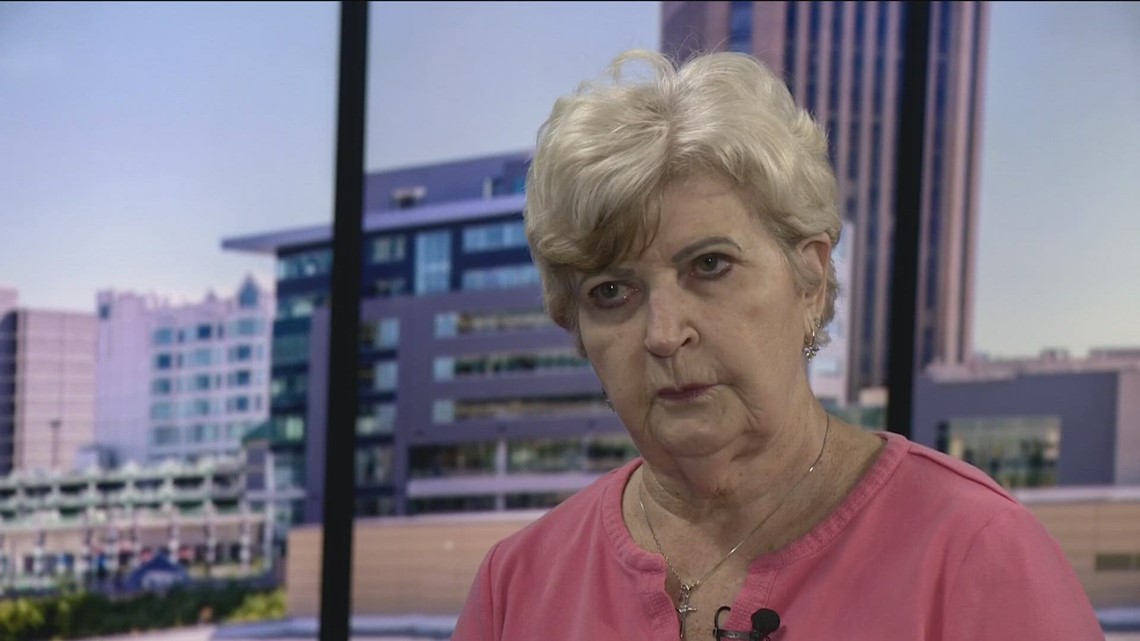We Need Sensible Intellectual Home Legal guidelines for Synthetic Intelligence

After a backwater stuffed with speculation, synthetic intelligence is now a burning, “hair on fire” conflagration of the two hopes and fears about the innovative technological transformation. A profound uncertainty surrounds these smart systems—which presently surpass human abilities in some domains—and their regulation. Earning the suitable selections for how to protect or handle the technologies is the only way that hopes about the advantages of AI—for science, drugs and improved life overall—will gain out about persistent apocalyptic fears.
General public introduction of AI chatbots such as OpenAI’s ChatGPT around the previous yr has led to outsize warnings. They variety from a single specified by Senate Majority Chief Chuck Schumer of New York State, who explained AI will “usher in extraordinary changes to the place of work, the classroom, our residing rooms—to practically each and every corner of existence,” to yet another asserted by Russian president Vladimir Putin, who reported, “Whoever turns into the leader in this sphere will come to be the ruler of the globe.” This kind of fears also incorporate warnings of dire effects of unconstrained AI from field leaders.
Legislative attempts to tackle these difficulties have currently begun. On June 14 the European Parliament voted to approve a new Artificial Intelligence Act, just after adopting 771 amendments to a 69-web site proposal by the European Commission,. The act calls for “generative” AI systems like ChatGPT to put into practice a number of safeguards and disclosures, this kind of as on the use of a procedure that “deploys subliminal tactics outside of a person’s consciousness” or “exploits and of the vulnerabilities of a specific group of persons thanks to their age, actual physical or psychological disability,” as effectively as to keep away from “foreseeable threats to well being, safety, elementary rights, the natural environment and democracy and the rule of law.”
A pressing query worldwide is irrespective of whether the data employed to educate AI units necessitates consent from authors or performers, who are also trying to find attribution and payment for the use of their works.
Quite a few governments have designed specific textual content and info mining exceptions to copyright legislation to make it a lot easier to acquire and use information and facts for schooling AI. These let some methods to train on on the internet texts, pictures and other do the job that is owned by other individuals. These exceptions have been satisfied with opposition lately, specially from copyright owners and critics with additional normal objections who want to gradual down or degrade the providers. They insert to the controversies elevated by an explosion of reporting on AI hazards in recent months linked to the technology’s prospective to pose threats of bias, social manipulation, losses of money and employment, disinformation, fraud and other hazards, which include catastrophic predictions about “the end of the human race.”
Latest U.S. copyright hearings echoed a popular chorus from authors, artists and performers—that AI training facts should be subject matter to the “three C’s” of consent, credit history and compensation. Just about every C has its individual realistic difficulties that operate counter to the most favorable text and facts mining exceptions embraced by some nations.
The national methods to the intellectual property associated with instruction info are various and evolving. The U.S. is working with numerous lawsuits to establish to what extent the truthful use exception to copyright applies. A 2019 European Union (E.U.) Directive on copyright in the electronic single industry bundled exceptions for text and facts mining, like a necessary exception for investigate and cultural heritage companies, even though giving copyright house owners the suitable to prevent the use of their functions for business solutions. In 2022 the U.K. proposed a wide exception that would implement to professional takes advantage of, though it was then set on keep previously this yr. In 2021 Singapore established an exception in its copyright legislation for computational details examination, which applies to text and information mining, data analytics and equipment discovering. Singapore’s exception involves lawful obtain to the information but cannot be overridden by contracts. China has issued statements suggesting it will exclude from schooling details “content infringing mental house rights.” In an April article from Stanford University’s DigiChina project, Helen Toner of Georgetown University’s Center for Security and Rising Know-how explained this as “somewhat opaque, presented that the copyright status of significantly of the information in question—typically scraped at massive scale from a large array of on line sources—is murky.” Lots of countries have no unique exception for text and information mining but have not but staked out a place. Indian officials have indicated they are not organized to regulate AI at this time, but like numerous other countries, India is keen to assist a domestic market.
As guidelines and regulations emerge, care must be exercised to keep away from a a single-sizing-suits-all technique, in which the principles that use to recorded audio or art also have over to the scientific papers and data made use of for health-related investigate and development.
Earlier legislative endeavours on databases illustrate the have to have for caution. In the 1990s proposals circulated to quickly confer legal rights to information extracted from databases, which includes statistics and other noncopyrighted aspects. 1 illustration was a treaty proposed by the Globe Mental Property Business (WIPO) in 1996. In the U.S., a various coalition of teachers, libraries, beginner genealogists and general public desire groups opposed the treaty proposal. But likely additional consequential was the opposition by U.S. businesses this kind of as Bloomberg, Dun & Bradstreet and STATS that arrived to see the databases treaty as equally pointless and onerous mainly because it would increase the stress of licensing the facts that they required to purchase and present to buyers and, in some conditions, would produce unwanted monopolies. The WIPO databases treaty failed at a 1996 diplomatic meeting, as did subsequent efforts to adopt a regulation in the U.S. but the E.U. proceeded to apply a directive on the legial security of databases. In the a long time since the U.S. has viewed a proliferation of investments in databases, and the E.U. has sought to weaken its directive by means of court choices. In 2005 its inner evaluations located that this “instrument has had no confirmed effect on the manufacturing of databases.”
Sheer practicality factors to an additional caveat. The scale of knowledge in huge language types can be tough to understand. The 1st release of Steady Diffusion, which generates pictures from textual content, necessary teaching on 2.3 billion photos. GPT-2, an earlier model of the design that powers ChatGPT, was properly trained on 40 gigabytes of information. The subsequent model GPT-3 was educated on 45 terabytes of data, extra than 1,000 periods bigger. OpenAI, faced with litigation about its use of data, has not publicly disclosed the particular dimensions of the dataset used for training the most up-to-date model, GPT-4. Clearing rights to copyrighted operate can be tough even for easy initiatives, and for extremely big jobs or platforms, the problems of even understanding who owns the legal rights is almost extremely hard, offered the simple requirements of finding metadata and evaluating contracts between authors or performers and publishers. In science, prerequisites for receiving consent to use copyrighted function could give publishers for scientific articles substantial leverage more than which providers could use the information, even even though most authors are not compensated.
Distinctions amongst who owns what make a difference. It is just one detail to have the copyright holder of a common music recording opt out of a databases it is another if an crucial scientific paper is still left out over licensing disputes. When AI is utilised in hospitals and in gene treatment, do you actually want to exclude appropriate information from the education databases?
Beyond consent, the other two c’s, credit score and payment, have their possess worries, as illustrated even now with the substantial charge of litigation relating to infringements of copyright or patents. But just one can also picture datasets and uses in the arts or biomedical study the place a well-managed AI plan could be useful to carry out gain sharing, such as the proposed open-supply dividend for seeding successful biomedical products and solutions.
In some situations, info utilized to coach AI can be decentralized, with a selection of safeguards. They include things like applying privateness protection, preventing undesirable monopoly manage and using the “dataspaces” techniques now becoming developed for some scientific facts.
All of this raises the evident challenge to any form of IP legal rights assigned to education information: the legal rights are fundamentally nationwide, even though the race to develop AI products and services is worldwide. AI packages can be operate wherever there is electrical energy and accessibility to the Internet. You don’t need a significant team or specialised laboratories. Companies operating in nations that impose pricey or impractical obligations on the acquisition and use of information to coach AI will compete against entities that work in freer environments.
If any person else thinks like Vladimir Putin about the potential of AI, this is food for thought.
This is an belief and investigation write-up, and the sights expressed by the author or authors are not always those people of Scientific American.
/cloudfront-us-east-1.images.arcpublishing.com/gray/MZZ6VZA235A7XOAVDRAO3AOUWQ.jpg)





